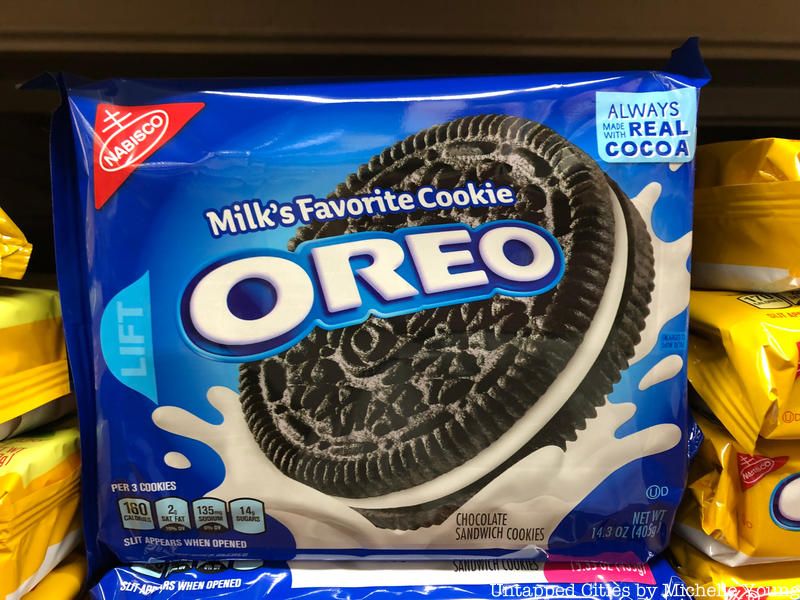100th Anniversary Great Nave Tour at the Cathedral of St. John the Divine
Celebrate the 1925 construction of the stunning nave inside the world's largest Gothic cathedral!


The 105-year old Oreo cookie is America’s favorite, but like Franklin D. Roosevelt, Woody Allen, and Billy Joel, just to name a few, it was also born in New York. Chelsea, to be exact, at Nabisco‘s former New York factory and headquarters. The building is now a popular high-end eatery and artisanal cheese mecca known as the Chelsea Market, but in the early 20th century, served a very different purpose.
Nabisco, short for the National Biscuit Company, was the result of the merging of several prospering baking companies, who built its homestead factory on the 15th Street block surrounded by 10th and 11th Avenue. Over time, the complex expanded to a total 19 buildings, a market, a factory, and several spaces for retail stores and offices. It was in 1912 that Nabisco, looking to create a cookie similar to the Hydrox creme-filled sandwich cookie that preceded it by only a few years, invented the Oreo. Called the Oreo Biscuit, the cookie was first sold to a grocer in Hoboken, New Jersey on March 6, 1912, and trademarked a week later. To this day, most believe the Hydrox cookie to be an Oreo knockoff, though the company has surprisingly managed to stay in business, despite a few bankruptcy scares, since then.

Nabisco’s lead food scientist, Sam Porcello, devised the recipe for the cookie’s creme filling, which has remained more or less the same for the past century, excluding a 1990s switch from lard to partially hydrogenated vegetable oil as its base. The cookie’s face design, introduced in 1924 to replace a more simplistic design, has also remained the same ever since. It’s believed that the Oreo was meant to be America’s attempt to break into the biscuit business more or less dominated by British companies. The popular English practice of dipping biscuits in tea is thought to be the main reason for the aggressive campaign for Oreo cookies dipped in milk.
Over the next 90 years, Nabisco found its greatest success in its humble little black and white cookie. The product, now sold in countless flavors and sizes that vary with location and season, is synonymous with the modern American snack, right up there with Honey Nut Cheerios or Capri-Sun.
Chelsea Market today, despite retaining a fair bit of its original steel and brick architecture from its days as a factory, probably considers itself a little too high-brow to sell Oreos anymore, but as always, it’s remembering one’s roots that keeps us grounded.
Next, read about Chelsea Market’s 20th century industrial background. Get in touch with the author @jinwoochong.
Subscribe to our newsletter